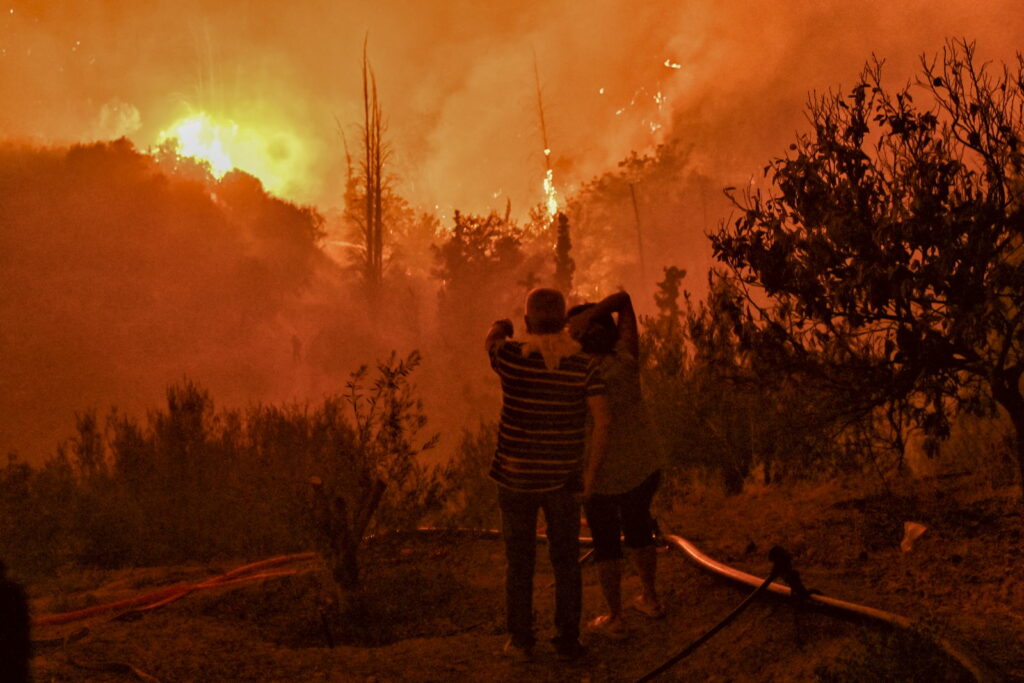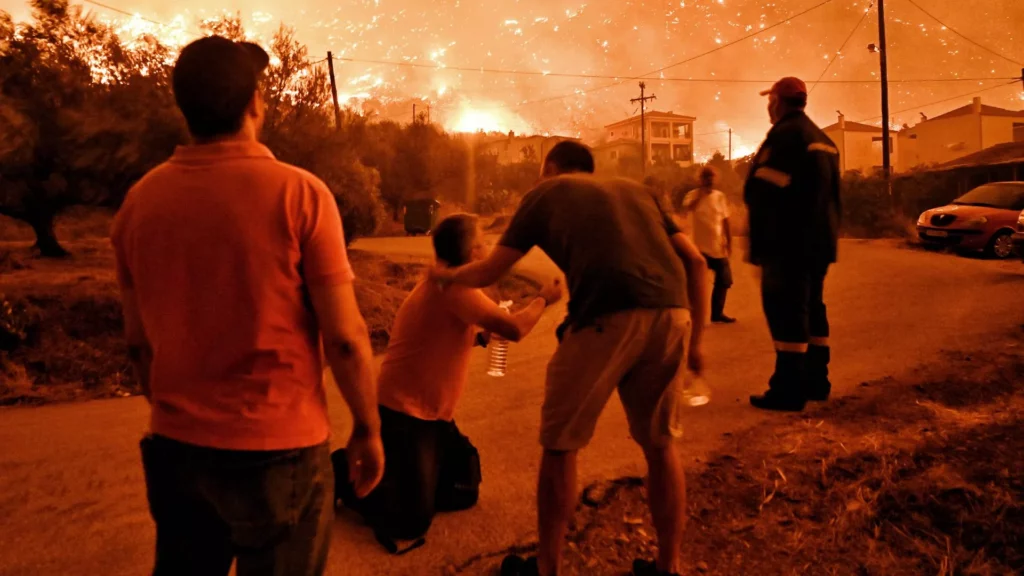Last year, Europe, the Middle East and Africa suffered some of the worst wildfires since 2000. In the EU, 2023 was the year with largest wildfire ever recorded in Greece.
According to the Forest Fires 2023 report, published on Tuesday (19 November) by the European Commission's Joint Research Centre, wildfires affected over 500 000 hectares of natural lands, roughly half the size of the island of Cyprus. At least 41 lives were reported killed in 2023.
The report contains the annual summary of the fire season of 2023 with official figures provided by 34 contributing countries for the number of fires, burnt areas and fire prevention efforts, and the analysis of fire danger and areas mapped in the European Forest Fire Information System (EFFIS).
In recent years, catastrophic wildfires have been common in the EU and neighbouring countries. The trend is upwards since 2006, with peaks in 2017 and 2022. The far most affected area in the EU is the Mediterranean area but also other areas are also increasingly affected.
The unprecedented wildfires sweeping Europe in the last four years show the undeniable effects of climate change on wildfires becoming more frequent and intense. The number of additional days per year with high-to extreme fire danger are increasing because of global warming. The 10 largest wildfires in the EU since 2020 took place in Portugal (5) and Greece (5).
Last September, an exceptional event took place in Portugal where multiple wildfires broke out simultaneously. This brought the 2024 wildfire damage above the EU average of the last decades. However, overall, 2024 can be considered a less severe wildfire season as it marks a downturn in damage after three consecutive years of devastating fires.
Climate change is not only increasing the size of the areas affected by wildfires, but also making individual fires more intense, prolonging the fire season beyond the traditional summer period, and causing fires to happen in areas that were not usually affected by them. Aerial firefighting becomes more arduous and ground operations become more difficult or even impossible.
More awareness and firefighting planes
To tackle wildfires, it is necessary to minimise the number of wildfire ignitions and manage the landscape in vulnerable regions. Nature-based preventive measures such as promoting tree species composition that is less fire-prone and enabling grazing by herbivores or prescribed burns are effective in reducing wildfire risk.

Wildfire in Portugal 2023, credit: Belga
According to the report, approximately 96% of wildfires in the EU are caused by human actions, meaning that education and awareness-raising campaigns are an essential part of the solution. About half of them are intentional, including arson, and the other half accidental and due to negligence, a Commission official told The Brussels Times. Only few of the wildfires are investigated.
However, as the climate crisis worsens, wildfires will become more common because of extreme weather conditions (heat, wind and drought). It is crucial for the EU to be prepared for more frequent and intense wildfires. Prevention measures must involve all sections of the population, including rural communities in direct contact with natural areas and people living in the ‘wildland-urban interface'.
The Commission and the EU Member States are improving their prevention, preparedness and firefighting capabilities. “When a major wildfire breaks out in Europe and around the world, the EU stands ready to help, among others with the deployment of aerial and ground firefighting forces through the EU Civil Protection Mechanism,” said Janez Lenarčič, Commissioner for Crisis Management.
The Mechanism has at its disposal a pool of 28 firefighting planes which can be deployed at relatively short notice at the request of affected countries. In total, there are more planes in the Member States but most of them are old and used for spare parts. An agreement with Canada on the production of 12 new amphibious firefighting planes will increase the active pool and improve its capacity.
The response time is also critical. It has not been reduced significantly but the requests are dealt within 24 hours, according to a Commission spokesperson.
M. Apelblat
The Brussels Times

